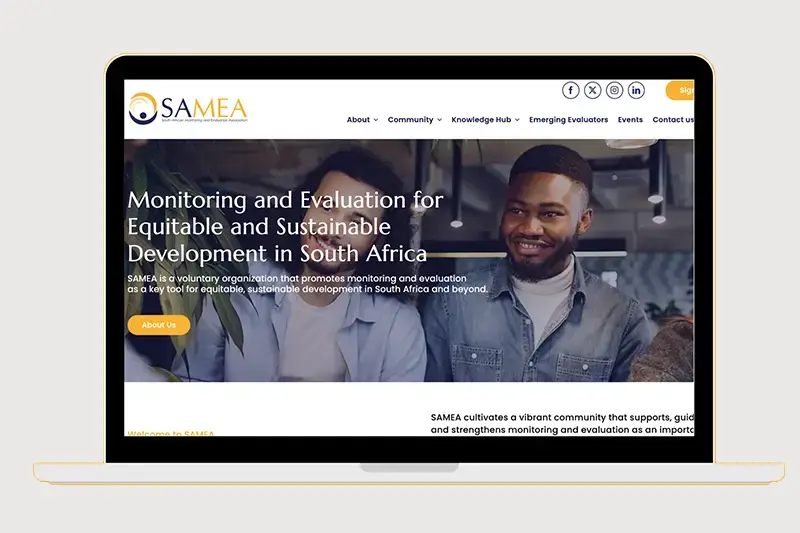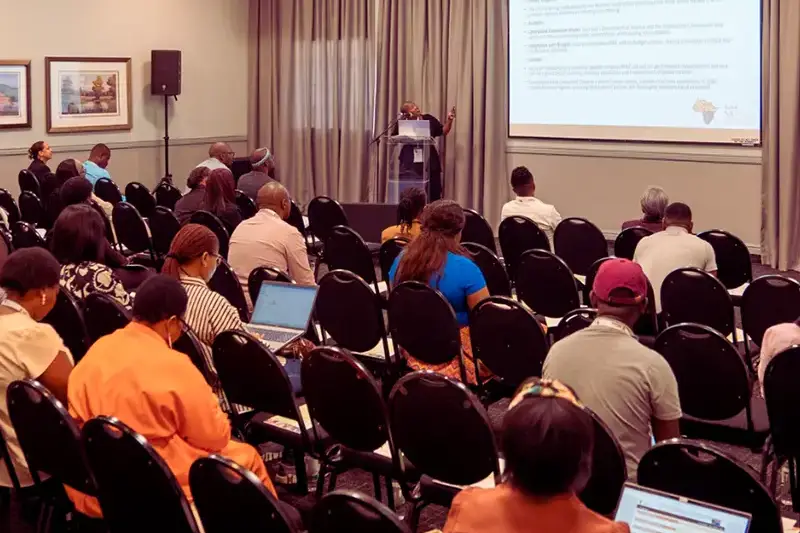Browse our Knowledge Hub
Unlock exclusive access to a vibrant community of evaluators, knowledge sharers, and emerging leaders driving equitable development.
Join us today and be part of the movement! Become a Member >
Gain exclusive access to a thriving network of evaluators, knowledge sharers, and emerging leaders championing equitable development.
Join a vibrant community of evaluators, knowledge sharers, and future leaders, all working together to promote equitable development.
M&E competencies encompass the essential knowledge, skills, attitudes, and behaviors required to conduct and manage quality evaluations.
Become part of a dynamic network of evaluators, thought leaders, and innovators driving forward equitable development.
Connect with a community of evaluators, knowledge sharers, and emerging leaders, all committed to advancing equitable development.
Exciting new resources and features coming soon!
 We’re upgrading the SAMEA Website and Membership Portal to make YOUR experience even better. Thanks for hanging in there with us!
We’re upgrading the SAMEA Website and Membership Portal to make YOUR experience even better. Thanks for hanging in there with us!





